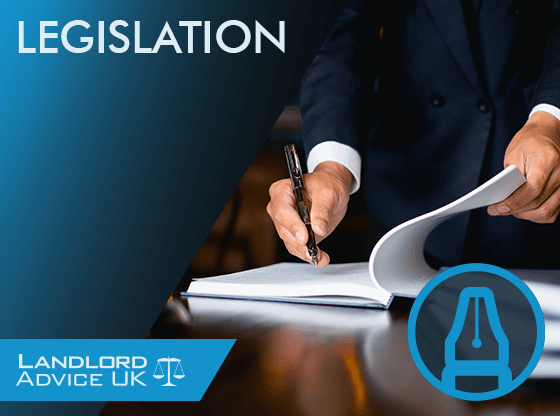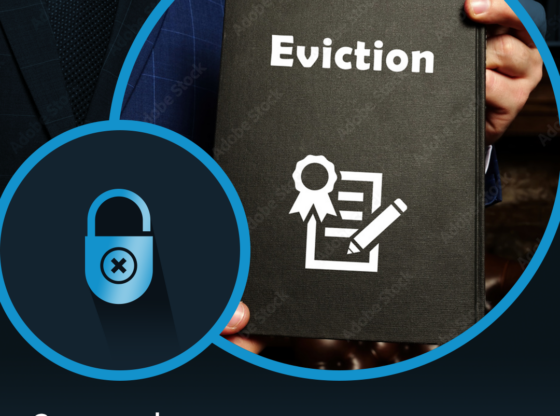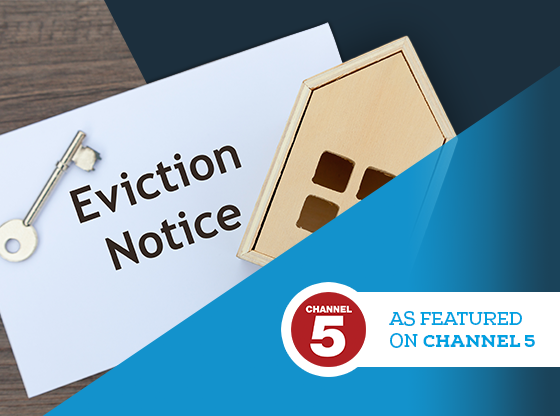Please note: this guidance applies to England only.
What fees can I ask a tenant to pay?
You cannot require a tenant (or anyone acting on their behalf or guaranteeing their rent) to make certain payments in connection with a tenancy. You cannot require them to enter a contract with a third party or make a loan in connection with a tenancy. The only payments you can charge in connection with a tenancy are:
- the rent,
- a refundable tenancy deposit capped at no more than five weeks’ rent where the annual rent is less than £50,000, or six weeks’ rent where the total annual rent is £50,000 or above,
- a refundable holding deposit (to reserve a property) capped at no more than one week’s rent
- payments to change the tenancy when requested by the tenant, capped at £50, or reasonable costs incurred if higher,
- payments associated with early termination of the tenancy, when requested by the tenant,
- payments in respect of utilities, communication services, TV licence and council tax; and
- a default fee for late payment of rent and replacement of a lost key/security device, where required under a tenancy agreement.
When does the ban apply?
The ban is being introduced in two stages.
- From 1 June 2019, if you enter into a tenancy agreement, student let or licence to occupy housing in the private rented sector, you will be prohibited from charging any fees or other payments that are not included in the list of permitted payments above.
- From 1 June 2020, the ban on fees will apply to all applicable tenancies and licences to occupy housing in the private rented sector. You will not be able to charge any fees after this date (apart from those fees which are expressly permitted under the ban as set out above).
Who does the ban apply to?
The ban applies to all assured shorthold tenancies, tenancies of student accommodation and licences to occupy housing in the private rented sector in England. The majority of tenancies in the private rented sector are assured shorthold tenancies.
Please note: certain licences to occupy are excluded from the Tenant Fees Act 2019, such as those granted under Homeshare arrangements (provided that the necessary conditions apply).
What does this mean for existing tenancy agreements?
If a tenancy agreement was entered before 1 June 2019, you can continue to require a tenant to pay fees written into that agreement (e.g. check-out or renewal fees) until 31 May 2020. After 1 June 2020, the term requiring that payment will no longer be binding.
Should you, in error, ask a tenant to make such a payment, you should return the payment 9 immediately and must return this within 28 days. If you do not return the payment within 28 days, you will be treated for the purposes of the Act as having required the tenant to make a prohibited payment (a payment that is outlawed under the ban).
You do not need to return any amount of tenancy deposit that is over the cap for tenancy agreements that were entered into before the Tenant Fees Act came into force.
What about damage to property?
The ban does not prevent landlords and agents from recovering damages for breach of contract. A landlord or agent is entitled to recover the costs to put them back in the position they would have been had a tenant carried out all the obligations in their contract (e.g. returning the house in the same condition as which it was found while allowing for fair wear and tear).
BREACHING THE BAN
Each request you make for a prohibited payment is a breach.
Where an offence is committed, local authorities may impose a financial penalty of up to £30,000 as an alternative to prosecution. In such a case, local authorities will have discretion whether to prosecute or impose a financial penalty. Where a financial penalty is imposed this does not amount to a criminal conviction.
A breach of the requirement to repay the holding deposit is a civil offence and will be subject to a financial penalty of up to £5,000.
Will I be able to appeal an enforcement authority’s decision to impose a financial penalty for breach of the ban?
Yes. You will be able to appeal to the First-tier Tribunal if you have been issued with a financial penalty in relation to the ban. An appeal against a financial penalty must be brought within 28 days from the day after the final notice was served. You may appeal against the decision to impose a penalty or the amount of the penalty.
If I receive a financial penalty for breaching the ban, will I be added to the database of rogue landlords and property agents?
If you receive two or more financial penalties within a 12 month period, at a time when you were a landlord or agent, a local housing authority has discretion to include you on the database of rogue landlords and property agents. An offence under the Tenant Fees Act 2019 is a banning order offence under the Housing and Planning Act 2016.
Can I still evict my tenant if I breach the ban?
Where a landlord has taken a prohibited payment, the landlord will not be able to serve a section 21 notice under the Housing Act 1988 until the prohibited payment is refunded.
If the landlords agent has taken a prohibited payment, as long as the landlord has not taken a prohibited payment the landlord can still serve a section 21notice.
However, a landlord may still serve a notice under section 8 of the Housing Act 1988 even where the landlord has failed to refund a prohibited payment. Despite this, landlords should still refund any prohibited payment before commencing action to recover their property.
Can a tenant receive compensation under the ban?
A tenant is entitled be repaid the sum of any unlawfully charged fees, an unlawfully retained holding deposit or amounts paid under a prohibited contract as well as any interest awarded by the enforcement authority (in line with the Act).
FURTHER READING ON PERMITTED PAYMENTS
The payments you can accept are:
Rent for use and occupation of property.
A refundable tenancy deposit (capped at no more than five weeks’ rent where the total annual rent is below £50,000, or six weeks’ rent where the total annual rent is £50,000 or above) You may ask a tenant to pay a tenancy deposit as security for the performance of any obligations, or the discharge of any liability arising under or in connection with the tenancy for example in case of any damage or unpaid rent or bills at the end of the tenancy. You are not legally required to take a deposit.
A refundable holding deposit (capped at no more than one week’s rent). You may ask a tenant to pay to demonstrate a commitment to rent the property whilst referencing checks take place. You cannot ask a tenant for a holding deposit which is more than one week of the total rent for that property. If you ask for a holding deposit which is above one week’s rent, this will be a prohibited payment. You may only accept one holding deposit for one property at any one time. If you accept more than one, this will be a prohibited payment. You should stop advertising a property once a holding deposit has been agreed to be paid. You must refund the holding deposit where a tenant later enters into a tenancy agreement, the landlord decides not to rent the property, an agreement is not reached before the ‘deadline for agreement’. The ‘deadline for agreement’ for both parties is usually 15 days after a holding deposit has been received by a landlord or agent (unless otherwise agreed in writing). You can only retain a tenant’s holding deposit if they provide false or misleading information which reasonably affects your decision to let the property to them (i.e. calls into question their suitability as a tenant, this can include their behaviour in providing the false or misleading information), they fail a right to rent check, withdraw from the proposed agreement (decide not to let) or fail to take all reasonable steps to enter an agreement (i.e. responding to reasonable requests for information required to progress the agreement) when the landlord and/or agent has done so. Where you wish to retain the holding deposit, you must set out in writing the reason for this within 7 days of deciding not to enter the agreement or the ‘deadline for agreement’.
Default fees (for late payment of rent and replacement of a lost key/security device, where required under a tenancy agreement) You can only charge a tenant a default fee where this has been written into the tenancy agreement and this is for a late payment of rent (which is more than 14 days overdue) or a lost key/security device giving access to the housing. 7 The fee will be a prohibited payment where this exceeds interest at more than 3% above the Bank of England’s annual percentage rate for each day that the payment is outstanding (for a late rent payment) or the reasonable costs incurred by the landlord or agent (for a replacement key/security device). The Act does not affect any entitlement to recover damages for breach of contract.
Changes to the tenancy (capped at £50 or reasonable costs if higher) Where a tenant requests a change to the tenancy agreement (e.g. a change of sharer or permission to keep pets on the property) you are entitled to charge up to £50 for the work involved in amending the tenancy agreement or the amount of your reasonable costs if they are higher. It is good practice for a landlord or agent to agree to reasonable requests to vary the tenancy agreement. The general expectation is that the charge will not exceed £50. You should provide evidence to demonstrate the reasonable costs of carrying out the work if you wish to charge above £50. Any charge that exceeds the reasonable costs you have incurred will be a prohibited payment. Please note: the provisions on a change to the tenancy does not apply to a renewal or to the length of the tenancy. From 1 June 2019, agents and landlords will not be able to charge for a renewal of a tenancy under the Act. However, if the tenancy was entered into before 1 June 2019 and it was agreed in their contract to pay certain renewal fees, then a landlord or agent can charge these fees for a new fixed-term agreement or statutory periodic agreement up until 31 May 2020.
Early termination (capped at the landlord’s loss or agent’s reasonable incurred costs) If a tenant requests to leave before the end of their tenancy you are entitled to charge an early termination fee. This must not exceed the financial loss that a landlord has suffered in permitting, or reasonable costs that have been incurred by the agent in arranging for, the tenant to leave early. This usually means that a landlord must not charge any more than the rent they would have received before the tenancy reaches its end. It is good practice to agree to any reasonable request to terminate the tenancy agreement early. If there are no missed rent payments, we encourage you to not charge any early termination fees unless you can demonstrate through evidence to the tenant that specific costs have been incurred (e.g. marketing and referencing costs). Any payment that exceeds the landlord’s financial loss or an agent’s reasonable costs will be a prohibited payment.
Council tax, utility and communications services. Tenants are still responsible for paying bills in accordance with the tenancy agreement, which could include council tax, utility payments (gas, electricity, water) and communication services (broadband, TV, phone). There is associated consumer protection legislation which prohibits landlords from over-charging for these services. The Office of Gas and Electricity Markets, ‘OFGEM’, fixes maximum resale prices under section 44 of the Electricity Act 1989, section 37 of the Gas Act 1986 and the Water Resale Order 2006 governs the maximum price for water.
Date: 17 May 2019











